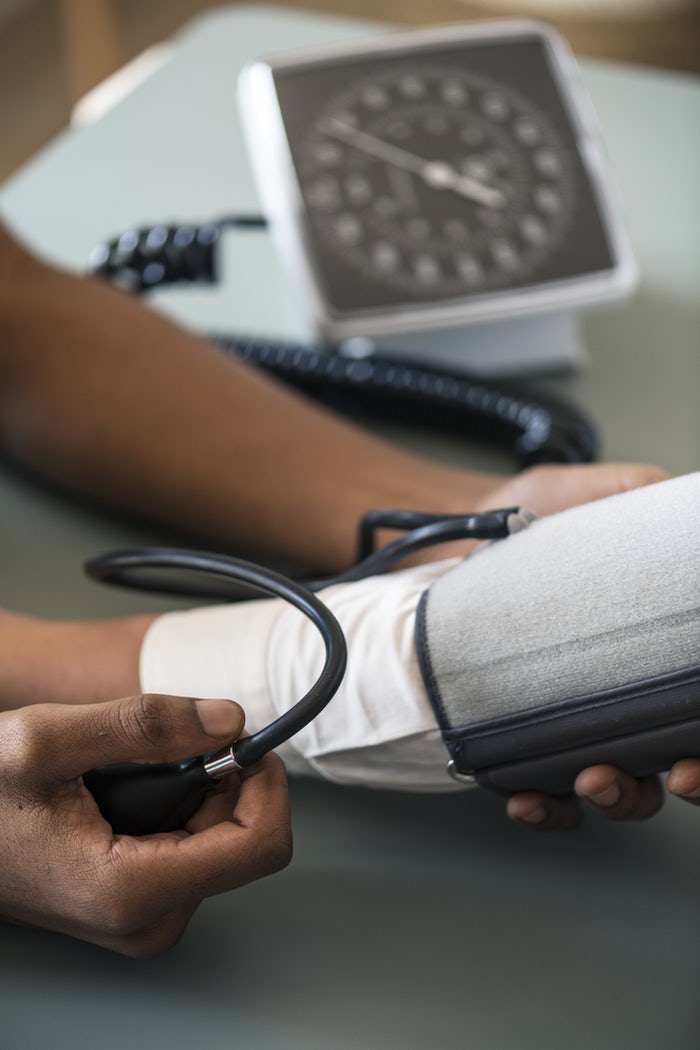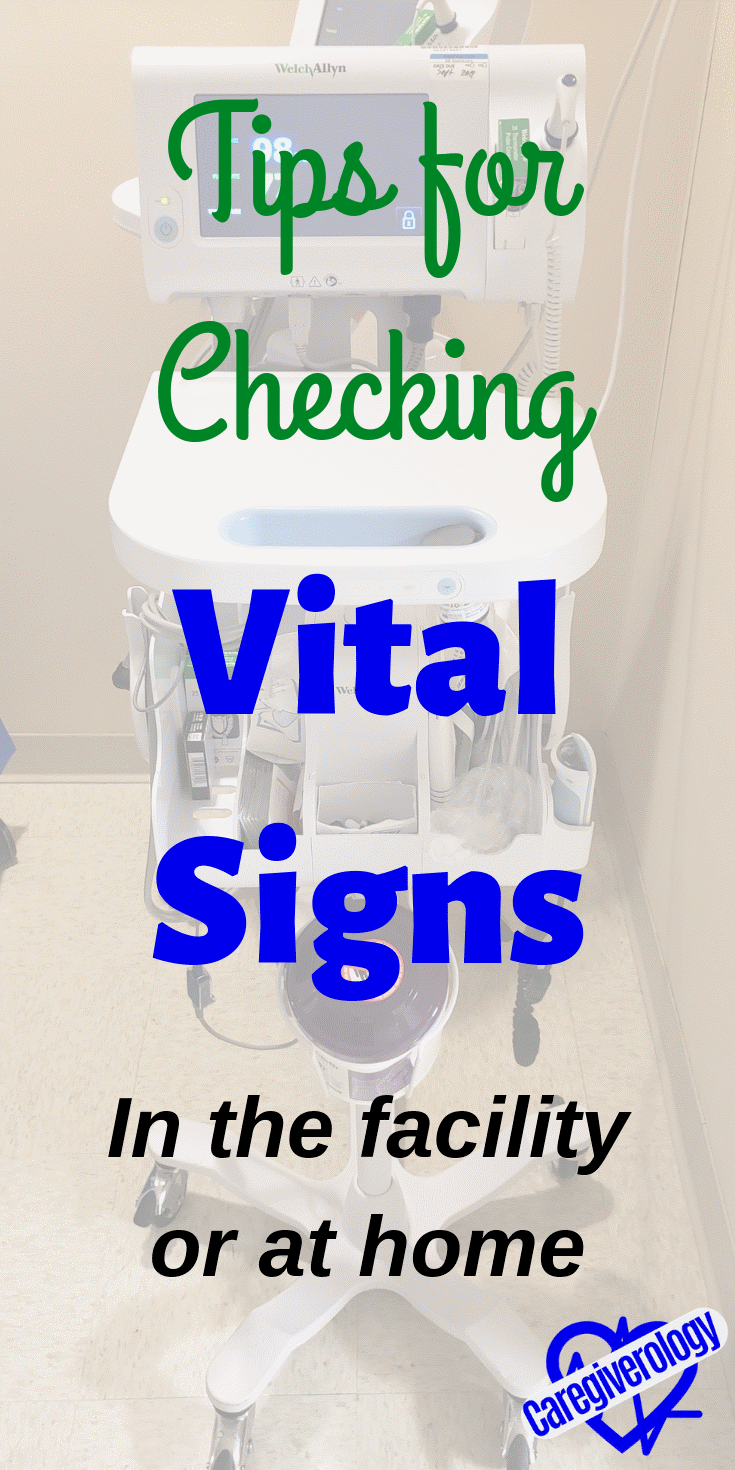Tips for Checking Vital Signs (VS)

If you are a caregiver and haven’t heard of vital signs (abbreviated as VS), then listen up. They are some of the most important things any caregiver can do for a patient. At the same time, they are some of the easiest things to do.
Check often What are they? Practice Pin
Check Often
When I worked as a certified nursing assistant, in a hospital, I personally had to check my patients’ vitals every four hours regardless of the reason why they were there. And yes, even at night. Some may say every four is overkill but is it? I don’t think so. Now that I am a registered nurse, I appreciate them even more.
I could name countless occurrences where those routine checks have saved the well-being or better yet, the lives of my patients. Saying it that way makes it sound like a big responsibility, and it is, but it’s nothing anybody can’t handle.
With the right equipment, you should be able to check anybody’s vitals in a mere five minutes or less. With medical technology improving every day, checking these things are becoming easier and more accurate. Some machines even check and record these things automatically.
What are They?
The four vital signs considered to be standard almost everywhere are body temperature, blood pressure measurement, pulse rate, and respiratory rate. These of course vary from person to person but they should be within a certain range.
At my job, oxygen saturation, which is checked with a pulse oximeter, is also considered a part of the routine checks. If the patient is diabetic, then I check their blood glucose as well, but not always every four hours. They may also have a heart monitor connected for constant observation.
If you are having a hard time keeping track of all of these different things then a mews score, which often includes an avpu check, may prevent you from missing something important. It is a calculation done to help determine if a patient needs further medical attention. It is calculated with a combination of vitals among other things.
The most important thing anybody can do while getting their vitals checked is to relax. Slight movement or even emotions can alter results significantly. If your patient moves while getting something checked, it is best to restart the whole process. If something seems off, it is a good idea to ask them about stress or any other emotion out of the ordinary.

Practice, Practice, Practice
Checking vital signs are something everybody should know how to do regardless if they are a caregiver or not. If someone feels sick or has a change in mental status, then whoever is with them should immediately check them.
You should encourage everybody you know to learn these things. This website will tell you everything you need to know in order to be able to check anybody.
If you feel you need your own vitals checked, it’s best for someone else to do it, but if nobody else is around, you can attempt to check them yourself. The most difficult one will be respiratory rate. You will usually try to regulate your breaths without even realizing it and get a false reading.
If you or anybody else you know is unfamiliar with any of these vital signs, then you should practice them, preferably on somebody else of course, until your skills are perfected. Checking these things has saved countless lives and without them, the “care” in caregiver would be lost almost entirely. Learn them, memorize them, and check them often.
Pin this article!
From Tips for Checking Vital Signs to Home
Recent Articles
-
Common Truck Crash Injuries and Legal Remedies - Caregiverology
Jul 19, 25 10:49 AM
Known for its sun-drenched beaches, vibrant arts scene, and bustling maritime industry, Fort Lauderdale is a city that sees heavy traffic both on its roads and at its busy port. Unfortunately, with th… -
Why Expert Legal Help Matters After Serious Injury - Caregiverology
Jul 19, 25 10:35 AM
In Houston, over 67,600 car crashes occurred in 2023, resulting in 290 fatalities and 1,612 serious injuries. That’s roughly 185 accidents every day. -
How Life Care Planners Support Injury Recovery - Caregiverology
Jul 19, 25 10:18 AM
In Los Angeles, life care planners play a vital role in supporting injury recovery, especially for individuals facing catastrophic injuries such as traumatic brain injuries or spinal cord damage.





New! Comments
Have something to say about what you just read? Leave a comment in the box below.